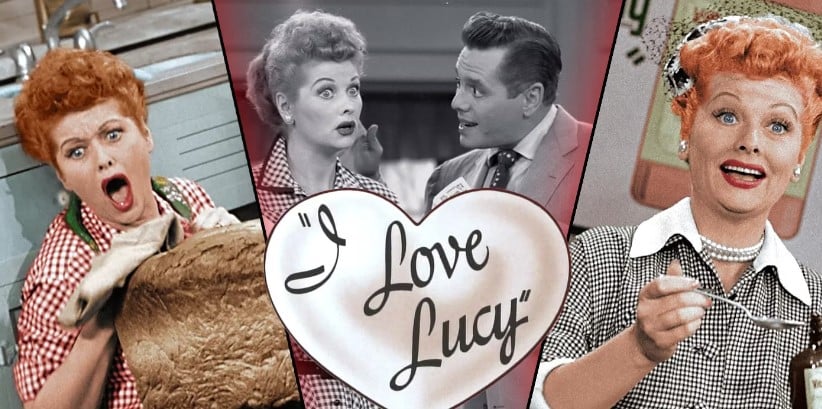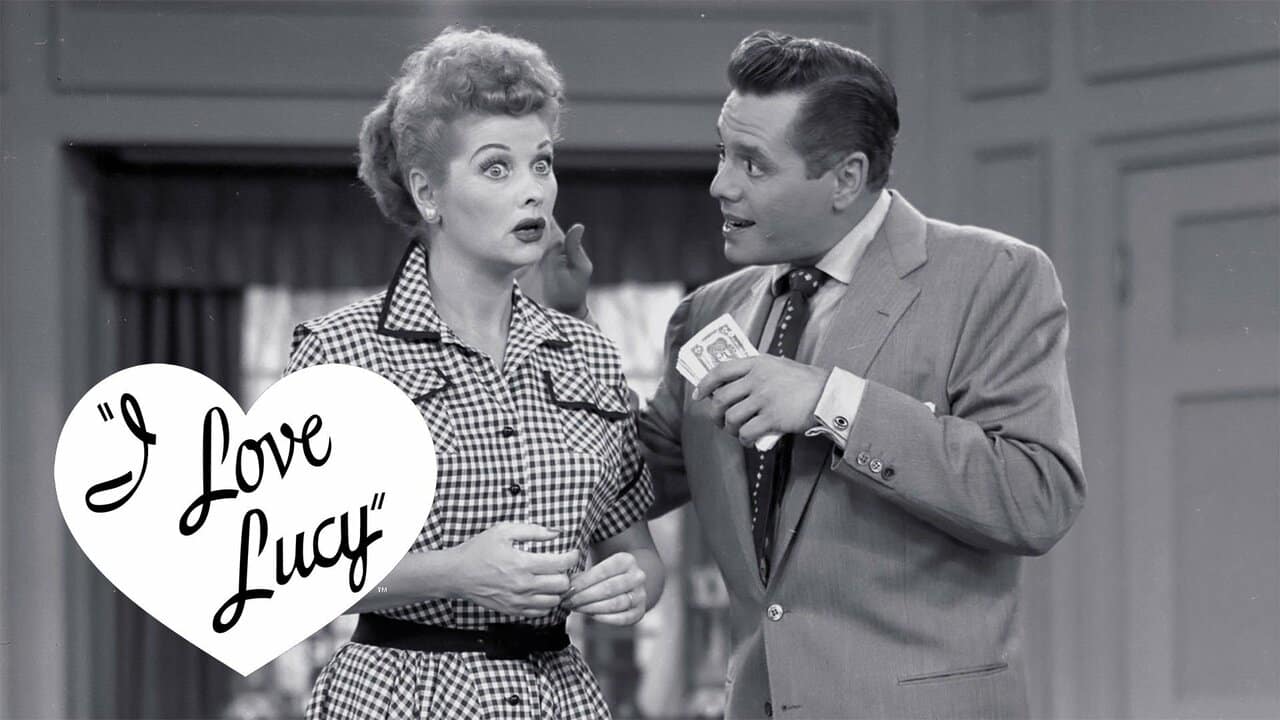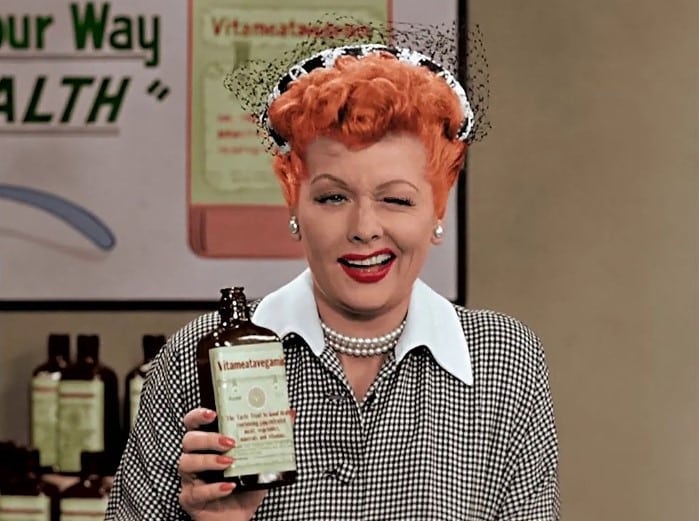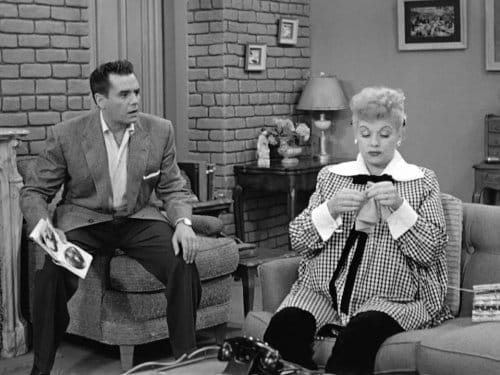If you love watching comedy series, you must know the groundbreaking sitcom “I Love Lucy”. It aired in the 1950s, starring Lucille Ball and Desi Arnaz and followed the comedic adventures of Lucy Ricardo, a housewife, and her husband Ricky, who was a bandleader. The show’s success stemmed from its hilarious scenarios and the chemistry between its lead actors. Lucille Ball’s impeccable comedic timing and physical comedy skills also contributed to its popularity. The iconic movie is beyond a comedy hit, it affected American society, especially in the 50’s.
“I Love Lucy” – a glimpse into the lives of your next-door neighbors

“I Love Lucy” is hugely popular even decades after its first airing. Many attribute its enduring appeal to one simple fact: it’s funny. But there’s more to it than just humor. The show’s ability to captivate audiences of all ages speaks to its timeless charm and the universal themes it explores. With its clever writing, memorable characters, and innovative use of comedy, “I Love Lucy” continues to entertain viewers across generations.
For people who lived In the 1950s, Lucy and Ricky could have been familiar neighbors from down the street. They lived in a simple home in Manhattan and dealt with everyday stuff like rent and buying new things for the house. Watching them, viewers could see their own struggles and joys reflected back at them. It made the show really relatable to regular Americans.
“I Love Lucy” was all about taking everyday situations and making them hilariously exaggerated. Lucy constantly found herself in sticky situations, but she always managed to find a way out of them. Her husband Ricky was often the one to catch her schemes and put a stop to them. Even their best friends, Fred and Ethel, got caught up in the madness. Lucy’s fiery personality clashed with Ricky’s Cuban charm, creating a dynamic duo that kept audiences laughing. Together, they tackled scenarios that many Americans could relate to.
The Unpredictable Success Of “I Love Lucy”

Undoubtedly, Lucille Ball was the heart of “I Love Lucy” with her amazing humor and funny antics. But let’s not forget Desi Arnaz, who brought a lot to the table too. Then there’s William Frawley and Vivian Vance, who played Fred and Ethel Mertz. They were lucky finds because they had skills in music and dance from their vaudeville days, which the show cleverly worked into the scripts. Together, these four actors had a special knack for making people laugh.
“I Love Lucy” first premiered on Monday, October 15, 1951, airing on the CBS television network. Back then, CBS had a few major stations and seventy-four local affiliates. There was tough competition from NBC at the same 9 p.m. time-slot, with “Lights Out,” a popular television adaptation of a classic radio show. Critics didn’t think “Lucy” had much of a chance. The debut episode, titled “The Girls Want to Go to a Nightclub,” was introduced by one of the many Philip Morris cigarette commercials.
After watching the first episode, the critics changed their tunes. TV Guide dubbed it as the most popular show of the season, praising its smooth, deft, and solid production alongside its humor. By May, a staggering 11,055,000 American families tuned in every Monday night, a remarkable feat considering there were only 15,000,000 TVs in operation that year. On April 18, 1952, Nielsen ratings confirmed what many already knew: “I Love Lucy” had become the top show in the nation, reaching a record-breaking audience of twenty-three million people in nine-and-a-half million homes.

The Los Angeles Times crowned it as the biggest television sensation of its time.
“A phenomenal 40 million viewers watched the antics each week as Lucy would always try to outwit Ricky,” wrote the Times writer Roxane Arnold in 1989. “With their best friends and landlords, Fred and Ethel Mertz, played by veterans William Frawley and Vivian Vance as the perfect foils, the Ricardos found themselves mired in situations that frequently were rowdy and always ridiculous.”
It might surprise you to know that when “I Love Lucy” was in the making, not many folks believed it would become such a hit. The idea for the show actually came from Lucille Ball’s radio gig called “My Favorite Husband,” which was doing pretty well. CBS thought it might be a good move to turn that radio show into a TV series. At that time, TV was starting to grab attention, especially after Milton “Uncle Miltie” Berle became a big deal on the small screen. So, the big networks were trying to bring popular radio shows to TV. Some big-shot actors from movies were not keen on TV though; they felt it was beneath them. But Lucy, who had already done well in movies and had a stint as a model when she was younger, saw this as a great chance to jump into TV.
How “I Love Lucy” Effected Shopping Behavior

“I Love Lucy”, a huge hit in the early 1950s captivated audiences across America. It was so loved that even Lucille Ball, who played Lucy, joked about its popularity.
“In 1951-52, our show changed the Monday-night habits of America. Between 9 p.m. and 9:30 p.m, taxis disappeared from the streets of New York. Marshall Fields department store in Chicago hung up a sign: ‘We love Lucy too, so from now on we’ll be open Thursday nights instead of Monday.’ Telephone calls across the nation dropped sharply during that half hour, as well as the water flush rate, as whole families sat glued to their seats.”
In fact, the show was such a big deal that stores changed their hours because people stayed in to watch it on Monday evenings.
The Change of America’s Perception of Motherhood By “I Love Lucy”

In 1952, “I Love Lucy” faced a big challenge. Lucille Ball, the star of the show, was pregnant with her second child, and so was her husband, Desi Arnaz. While this was a joyful time for the couple, it posed a problem for the show , considering the societal taboos around depicting pregnancy on television.
The Code of Practices for Television Broadcasters said no talking about anything sexually suggestive on the air, including the discussion of pregnancy because it implied that a couple, even a married one, had engaged in baby making. When the producers told Desi that Lucy’s pregnancy might be a problem for the show, he couldn’t believe it. He asked, “What is so wrong if she has a baby in the show as Lucy Ricardo?” The executives suggested they could hide her pregnancy behind chairs or tables, but he responded, “Not Lucy”. Many people working on the show worried it might get canceled.
Eventually,Desi and writer Jess Oppenheimer discussed Lucy’s pregnancy with CBS and sponsor Philip Morris decided to make a bold decision to shift social norms. They wrote Lucille’s real-life pregnancy into the show, though they used the word “expecting” instead of “pregnant.”
Lucy’s due date was in January. On Dec. 8, Lucy’s character breaks the news to Ricky that she’s pregnant in an episode titled “Lucy Is Enceinte,” using the French word for pregnant.
Determined to share the joyful news, Lucy heads to Ricky’s nightclub. During Ricky’s performance , he is handed a note from an anonymous audience member who wants to tell her husband that they are going to “have a blessed event.”
As Ricky walks around the club singing “Rock-a-bye Baby,” he asks several couples if they are the lucky pair, but no one says yes. He then sees Lucy seated at a table. “Hiya, honey,” he says, yet doesn’t notice that his wife is nodding her head yes. Suddenly he catches on, kneels before her and tearfully announces, “It’s me. I’m going to be a father. How about that,” as he gazes into Lucy’s eyes. “The audience was in tears,” recalled director William Asher. “It was terribly emotional.”

In 1953, Lucille Ball had a scheduled caesarean delivery for January 19th. CBS prepared to air the birth episode that evening. Whether Lucille Ball’s baby was a boy or a girl, on I Love Lucy the baby was to be a boy. A record-breaking 44 million Americans, equivalent to 72% of households with TVs, tuned in to watch “Lucy Goes to the Hospital.” The episode depicted Ricky, Ethel, and Fred’s chaotic attempts to get Lucy to the hospital, unfolding in a slapstick sketch reminiscent of the Keystone Cops. The episode attracted more viewers than President Dwight D. Eisenhower’s inauguration the next day.
Comedienne Edie Adams, who was performing in the hit Broadway musical Wonderful Town, recalled watching the episode backstage in New York. “We had a television set in the back for when Lucy had the baby. And the entire evening everybody was running back [asking] ‘Is it there? Is it?’” she said.
The International News Service proudly announced, “TV Actress Lucille Ball Gives Birth to Son, Exactly According to Script.” Shortly after, while Lucy, the new mom, won an Emmy for Best Comedienne, Desi and Oppenheimer walked away with statuettes for Best Situation Comedy.

